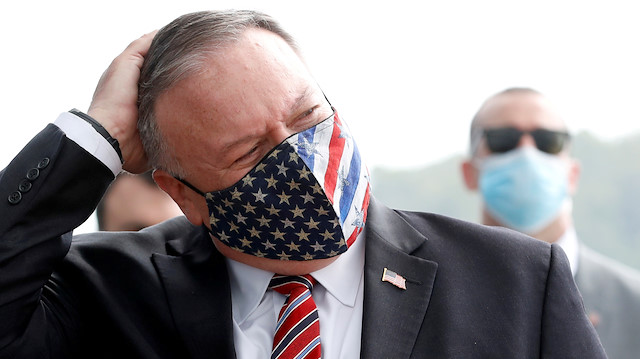
BALANCING ACT
Pompeo has led the rhetorical assault on China, accusing Beijing of covering up the COVID-19 outbreak and of using nefarious means to attempt to displace the United States as the world's leading power, while brutally oppressing religious minorities and political opponents.
He has also infuriated Beijing, which has been an important player in U.S.-led attempts to persuade North Korea to denuclearize, by increasing U.S. engagement with Taiwan, which Beijing considers a renegade province that it has vowed to reunite with the mainland, by force if necessary.
Rising tensions over Taiwan have led some analysts to speculate China might be tempted to take advantage of a contested U.S. election to realize this goal and have also generated suggestions that Pompeo should consider an unannounced stop in Taipei to underline U.S. support.
If he did, he would be the most senior U.S. official to visit the island since Washington switched recognition to Beijing from Taipei in 1979. China would see such a move as an enormous provocation.
Asked about such rumors on Friday, Stilwell did not specifically dismiss them, but said U.S. policy toward Taiwan had not changed and he had no additional travel to announce.
Randall Schriver, until last year the top Pentagon official dealing with East Asia, said the fact there was bipartisan support in Washington for a tougher line on Beijing that would also prevail in the case of a Biden administration meant Pompeo could have more robust conversations.
The United States has accelerated efforts to cut back reliance on China for medical and security-related supply chains and lobbied hard to get allies to cut cooperation with telecoms giant Huawei and other Chinese technology firms.
While the Quad meeting may not yield a specific action plan, the very fact of its meeting would serve as a warning to China and play to its fears that it might one day grow into a formalized grouping as NATO had to contain the Soviet Union, Green at CSIS said.
Japan, which is embroiled in a dispute with China over ownership of islands in the East China Sea, has a new prime minister, Yoshihide Suga, who took office this month and has little diplomatic experience.
He has to contend with maintaining working ties with Japan's bigger neighbor and U.S. demands for a tougher stance.
"If Japan takes a total confrontation approach ... there would be an uproar in Japan - Japanese public opinion is divided and it would shake the basis of the new Suga government," said Akio Takahara, a China specialist at the University of Tokyo.
South Korea, another U.S. ally engaged in bruising talks with the Trump administration over shared defense costs, has been skeptical of the Quad. It has responded coolly to the idea of South Korea joining the grouping or a more formal alliance.
"We are willing to engage in discussions on specific issues, but if that's a structured alliance, we will certainly think very hard about whether it serves our security interest," its foreign minister, Kang Kyung-wha, said this month.














